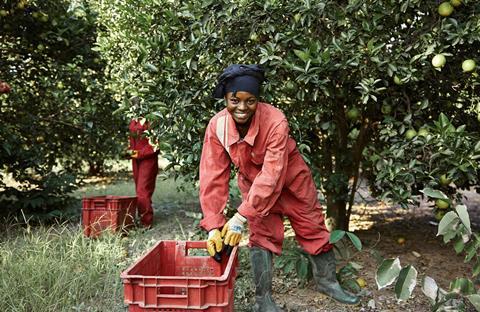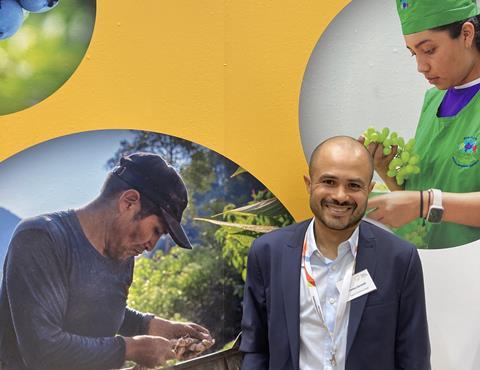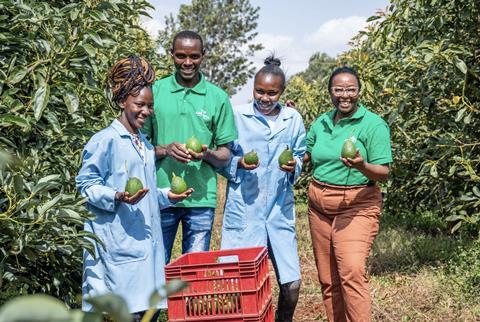Through a focus on transparency, quality and long-term partnerships with producers, Import Promotion Desk is helping bridge the gap between smallholders in developing regions and European markets, says IPD’s Thomas Derstadt

Sustainability in sourcing is no longer a buzzword; it’s a vital part of the agricultural industry, especially when it comes to fresh produce. This issue is front and centre for many importers, and the Import Promotion Desk (IPD), based in Germany, has become a key player in supporting sustainable sourcing practices.
Through its dedication to transparency, quality standards and long-term partnerships with producers, IPD is helping bridge the gap between smallholder farmers in developing regions and European markets, according to Thomas Derstadt, sourcing and markets expert at IPD.
“We are, in essence, a middleman, but a good one,” says Derstadt. “We’re not charging either side, and we strive to bring more transparency into the process.”
According to Derstadt, IPD’s impartiality enables buyers in Europe to trust that the growers they’re sourcing from meet the highest standards, both in quality and sustainability. The process starts with thorough due diligence, with IPD working closely with local business support organisations, consultants and farmers to ensure producers are ready to meet the demands of European markets.
One of the main challenges IPD faces is selecting the right partners. “It’s not just about finding a supplier; it’s about finding the right supplier,” says Derstadt. “If you work with random traders, you’re likely to face problems, which in turn can damage the image of the whole country.”

He cites Kenya as an example, where smallholder farms are prevalent. While these farms can be highly productive, working with them requires stringent protocols and oversight. “You need companies that are serious about adapting and implementing controls, so you can ensure the quality and sustainability of what they’re producing,” he adds.
Supporting producers for long-term success
IPD’s approach is centred on empowering producers, especially those in countries where exporting to Europe might seem daunting. By providing training in areas such as corporate social responsibility (CSR) and environmental, social, and governance (ESG) practices, IPD supports farmers not only in meeting the necessary standards but also in developing long-term strategies for growth. “We want to make sure our partners are not just compliant with European market demands but are also improving their internal processes for sustainability and worker welfare,” Derstadt explains.
For example, IPD provides training on how to create CSR plans and guides producers through the initial steps of obtaining social certifications. “This is part of our motivation and identity as an organisation,” says Derstadt. “But it’s also beneficial for the producers because these certifications open up new markets and help them build a stronger reputation.”
Overcoming logistical challenges
Logistics is another area where IPD’s support is invaluable. Issues such as the long transit times through the Red Sea, as seen with Kenyan products, can pose significant challenges. The situation has been further complicated by global issues like climate change, which can affect crop yields, and geopolitical events, such as the ongoing war in Ukraine, which has disrupted supply chains in certain regions.
While IPD doesn’t directly handle logistics, it plays a critical role supporting buyers in navigating these issues. “We can advise on how to diversify supply sources to mitigate the risks posed by logistical delays or other disruptions,” says Derstadt. “In many cases, buyers are looking to broaden their supplier base. They realise that relying on a single source is no longer viable in today’s unpredictable world.”

For instance, countries like Morocco, Peru and Egypt are becoming increasingly important to European buyers who once relied heavily on Spain and Italy. “We work to ensure that suppliers from these countries are well-prepared and have the necessary certifications,” Derstadt points out.
Commitment to social responsibility
Sustainable sourcing goes beyond environmental factors—it also includes social responsibility, and Derstadt says IPD helps ensure its partners comply with fair labour practices and are working toward improving wages and working conditions.
“We don’t conduct full audits, but we do initial checks to make sure basic labour standards are being met,” explains Derstadt. “We also provide training in ESG and CSR, which helps these companies start thinking about their impact on workers and the environment.”
Through its targeted programmes, he says, IPD is helping to create a more sustainable and transparent supply chain that benefits all parties involved—from the farmers on the ground to the European importers and, ultimately, the consumers.
“At the end of the day, our goal is to create a sustainable market that works for everyone,” concludes Derstadt. “That’s the future of sourcing.”



